Palmyra: IS 'kills 20 men' at ancient theatre
- Published
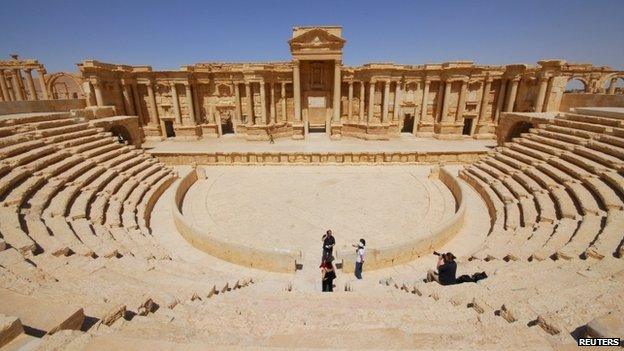
The men were said to have been shot dead inside the ancient theatre, pictured here in 2008
Islamic State (IS) militants have killed 20 men at the ancient theatre inside the Unesco World Heritage site of Palmyra, central Syria, a monitoring group says.
Residents were rounded up and forced to watch the men being shot, the Syrian Observatory for Human Rights says.
About 240 people - mostly soldiers - have now been killed by IS since it overran the town last week, it adds.
It comes amid fears IS may destroy the 2,000-year-old Roman-era ruins.
IS militants have already destroyed ancient sites in Iraq that pre-date Islam - most recently the ancient city of Nimrud, one of Iraq's greatest archaeological treasures.
'New images'
Since the town's takeover, IS has also taken control of a military airbase and a notorious prison nearby.
There have so far been no reports of damage at the site in the town of Palmyra, known locally as Tadmur. Last week IS militants locked the doors to the museum at the site and placed guards at its doors, Syrian officials said.
Footage published online by a jihadist media outlet belonging to IS purportedly showed the ruins "undamaged", Reuters reports. While there has been no independent verification of the images, residents on the ground say the ruins remain unharmed, the news agency adds.
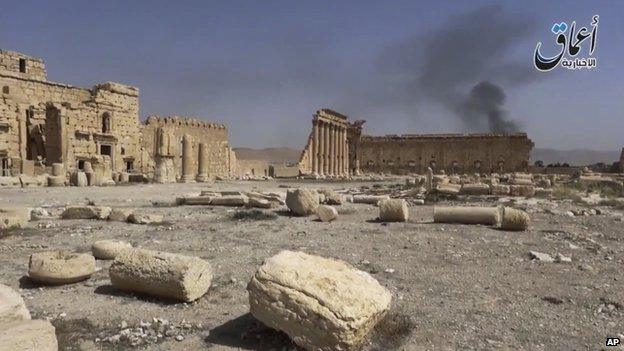
A video released by IS earlier this week alleged to show the ruins in Palmyra unharmed
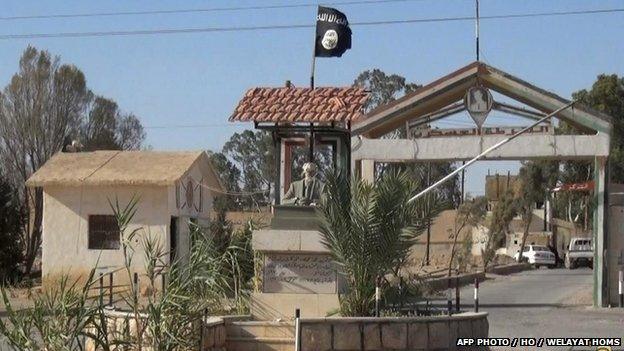
Other images released by jihadist media outlet "Welayat Homs" allegedly showed the IS flag hoisted above Tadmur's notorious prison
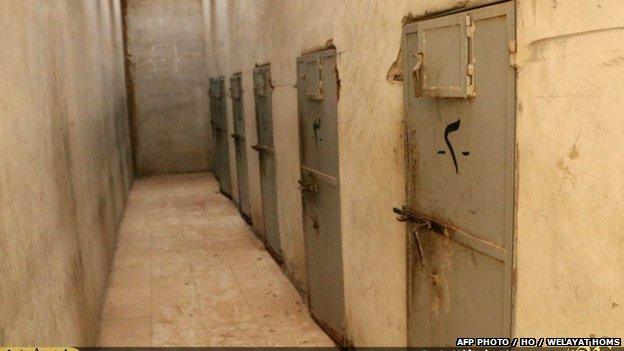
Images said to be from inside one of the prison cells were also released
Syrian officials said they had moved hundreds of Palmyra's statues to safety prior to the IS takeover but could not transfer large monuments.
The 20 men who were shot dead on Wednesday were accused by IS of fighting alongside Syrian pro-government troops, who fled the town in the face of the IS onslaught last week.
Soon after the town's capture last week, witnesses said IS militants went door-to-door looking for government soldiers and made announcements via a large mosque calling on residents to hand them over.
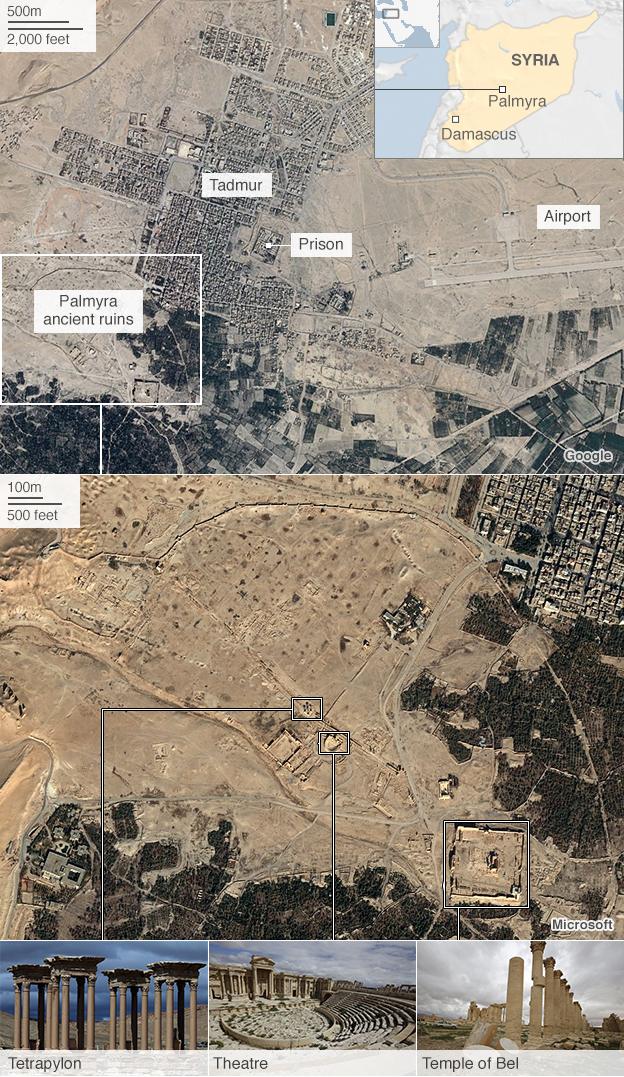
The Syrian Observatory for Human Rights, which tracks developments on the ground in Syria based on witness reports, said nearly 70 women and children were among the 240 people killed in the town. There are fears that another 600 prisoners the militants are holding may suffer a similar fate.
There are also concerns that a rare species of bird, the northern bald ibis, may become extinct in Syria because of the town's capture.
About a third of the town's 200,000 residents were able to flee before IS arrived, the UN told the BBC last week. But it said it had received reports that Syrian forces based in Palmyra had prevented many others from leaving.
The ancient ruins are situated in a strategically important area on the road between the Syrian capital, Damascus, and the contested eastern city of Deir al-Zour.